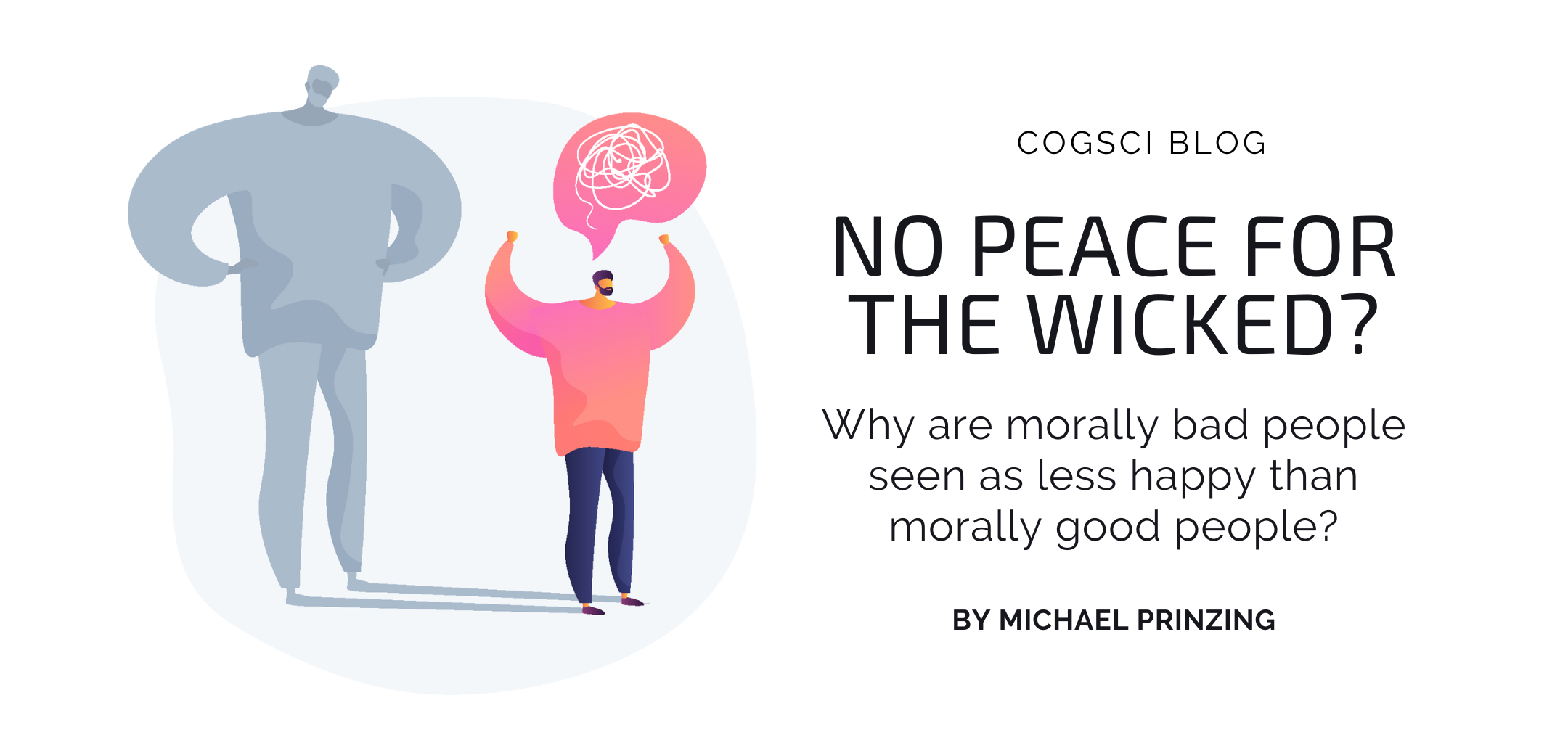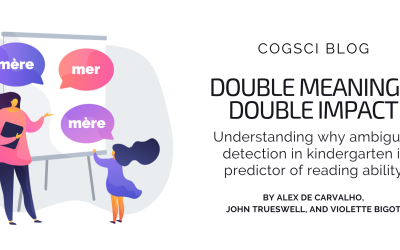Welcome to CogSci Unpacked, an exciting new blog series dedicated to summarizing academic papers from the Cognitive Science, a CSS Journal. Our goal is to bridge the gap between academia and the broader public, fostering a better understanding of cognitive science and making it accessible and relatable to all. If you’re curious to dive even deeper, we invite you to explore the full academic paper.
Imagine learning about someone, Tom, who seems to be satisfied with his life. He enjoys his job at the local community college, and always seems to be in a great mood. Now suppose you learn that Tom has been stealing students’ belongings, framing other students for the thefts, and using the money to buy alcohol. Do you think Tom is happy?
If you’re like most people, you will be at least a little unsure about whether Tom is actually happy. Numerous studies have shown that, in general, people tend to think that a person living a morally bad life is less happy than a person living a good life, even when all other details about the person are held constant (Chen, Harris, & Yang, 2023; Yang, Knobe, & Dunham, 2020; Phillips et al., 2017). This effect has been observed in children as young as four and across cultures, suggesting that it reflects something deep about the way that we attribute mental states to others. But why does this effect emerge?
One possible hypothesis is that people consider immorality to be a source of inner disharmony. When someone is living a morally bad life, people tend to think that the person is not at peace with themselves, and that this inner turmoil impedes the person’s ability to experience pleasant emotions and satisfaction. The basic idea behind this hypothesis can be found in religious and philosophical texts from around the world. For instance, the idiom “no peace for the wicked” comes from the Bible (Isaiah 57:20-21). In the Republic, Plato argued that happiness consists of a kind of intrapersonal harmony that requires moral virtue. Ancient Chinese philosophers, like Confucius and Zhuangzi, similarly thought that harmony is essential to well-being.
Our research, recently published in Cognitive Science, suggests that these ancient ideas persist in the modern mind. In a pair of experiments, we presented people from across the United States with short stories about characters living either morally good or morally bad lives and examined people’s judgments about these characters.
In the first study, we found that morality doesn’t just affect attributions of happiness; it also affects attributions of inner harmony. And the effect on inner harmony attributions fully statistically explains the effect on happiness attributions. The second study found that these effects disappear when the characters are explicitly described as being at peace with themselves. That is, if people think that a morally bad person is experiencing inner harmony, then people do not judge the bad person to be any less happy than a good person.

The key results from the second study are illustrated in the figure. (Points indicate the mean in each experimental condition, with the vertical lines indicating the confidence interval around the mean. The colored regions visualize the distribution of individuals’ responses.) The effects on judgments about happiness presented on the left and effects on judgments about inner harmony on the right. The “At Peace” conditions are the ones where we clearly and explicitly described the characters as being at peace with themselves and experiencing inner harmony. The “Neutral” conditions were identical, except that they did not include these statements. As shown, inner harmony judgments and happiness judgments are lower for the morally bad characters—but only in the Neutral conditions. In the At Peace conditions, there was no effect of morality on either kind of judgment.
These findings suggest that, like Plato and others, 21st century Americans see happiness as requiring inner harmony. At the same time, we observed a key difference from Plato’s view insofar as people today don’t seem to think that moral virtue is necessary for inner harmony. People seem willing to believe that—at least under certain conditions—someone living a bad life can be at peace with themselves. And, in such cases, people think the person is happy. Hence, according to folk wisdom, there may be little peace for the wicked. But if they manage to find it, there can be happiness too.
References
Phillips, Jonathan, Julian De Freitas, Christian Mott, June Gruber, and Joshua Knobe. “True Happiness: The Role of Morality in the Folk Concept of Happiness.” Journal of Experimental Psychology: General 146, no. 2 (February 2017): 165–81. https://doi.org/10.1037/
Chen, Xinkui, Paul L. Harris, and Fan Yang. “Beyond Enjoyment: Young Children Consider the Normative Goodness of Activity Engagement When Attributing Happiness.” Journal of Experimental Child Psychology 228 (April 1, 2023): 105608. https://doi.org/10.1016/j.
Yang, Fan, Joshua Knobe, and Y. Dunham. “Happiness Is from the Soul: The Nature and Origins of Our Happiness Concept.” Journal of Experimental Psychology: General, 2020. https://psycnet.apa.org/doi/




